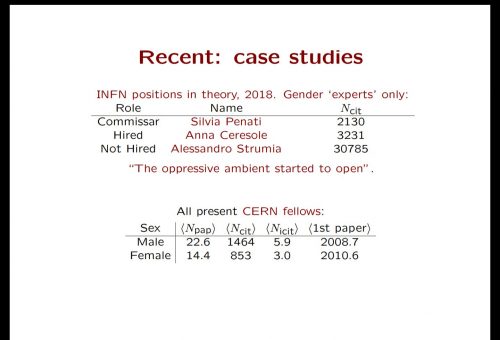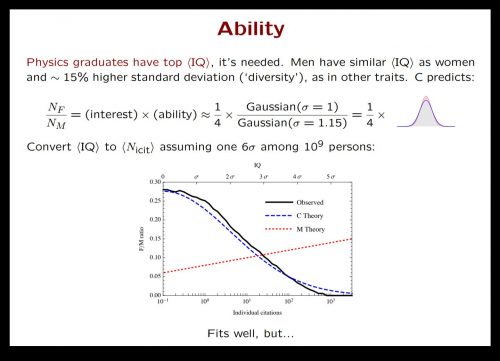Last week, I banned Andy Lewis, Maria Maclachlan, Alan Henness and a few of their friends. Oh, the weeping and wailing and rending of robes! The grief at this cosmic injustice! I have received so many messages of concern: Lewis/Maclachlan/Henness are so nice, so rational, such good skeptics and humanists, such upstanding members of the community, how could I possibly do this? And there lies the problem. Once someone joins a tribe, all the other members of the tribe are expected to assume that they’re good and nice and rational, and bugger all the evidence.
Andy Lewis is not nice and not rational. As evidence, I give you this: his response after being banned.
Over at ThoughtFreeBlogs, halfwit @pzmyers has banned @zeno001 and @Skepticat_UK for posting from the same IP address and possibly “being in a relationship” (They are married ffs).
Maria’s crime on the blogs was pointing out that she was beaten up by three thugs.
1/
— Andy Lewis 🍆🥥🥝 (@lecanardnoir) October 5, 2018
No one was banned for being in a relationship, which is simply stupid and absurd. I only noted that they were using the same IP address when I was trying to untangle the snarl of strange people brawling in the comments. Likewise, no one was banned for being the victim of a crime. This is all blatant dishonesty intended to stir up sympathy for these poor, innocent people who did nothing at all but love each other and get beat up by bad people. It’s hard to believe that anyone would fall for it, but they did — they were stumbling all over themselves in a rush to tell me what good skeptics they all are and gosh, aren’t they just the sweetest couple?
I’ll just point out that that tweet is such an obvious lie that it calls your judgment into question if you accept it.
Here’s what really happened. An anti-transgender activist (TERF) who has never commented here before found a post he didn’t like, and started trolling the group with aggressive and fundamentally dishonest comments to stir up conflict. His very first comment was disingenuous and misleading: Are we all so devoid of scepticism and full of misogyny that all here cannot bring themselves to accept the objective, material existence of women?
This was a thread about acceptance of transgender individuals, not about debating the existence of women. It is not misogyny to recognize the rights of transgender men and women. But Lewis just barreled in with misrepresentation as his opening gambit.
Note also: he kept this up, making 72 comments over less than a week, constantly stoking the flames and bloating the thread up to over 350 comments, many of which are addressing bogus issues he brought up. It’s a classic example of trolling. Andy Lewis is a troll, and also kind of an obsessed bigot about transgender people.
Furthermore, he recruited his friends to join in. It was a boiling wrangle with multiple TERFs raging when I finally stepped in and shut it down.
So, for instance, we quickly got mariamaclachlan jumping into the fray, and it’s an excellent representative of the fallacious arguments used throughout.
Oh for crying out loud, PZ! The word ‘woman’ means adult human female. Women do NOT have penises.
No, women don’t stop being women if they lose their ovaries any more than you stop being a man because your dick gets lopped off. Your sex is defined according to which of the two reproductive classes you were born into – you KNOW this really but you’ve drunk the ideological kool-aid and are in denial.
Thankfully, there are still some like Angelos who haven’t.
ALL SWANS ARE WHITE! If you find a black swan, we’ll just use our definition to exclude them from the category of swans. It’s an argument as old as Aristotle, and you would think that a skeptic would be familiar with the dangers of an argument from false premises. You don’t just get to blithely wave away counter-examples by referring to a cherry-picked definition.
I also don’t accept the automatic equating of “female” with “woman”, of confusing sex with gender. It also baffles me that anyone would do that: are they in the habit of checking the genitalia of every person they meet? There are almost 7½ billion people on the planet; I’ve met thousands of women; I work regularly with hundreds of them. I have never once asked any of them to show me that they don’t have a penis before accepting their gender. In fact, I’ve only seen the genitals of a handful of human females in my life; should I be skeptical of the identity of every other woman on Earth? How awkward.
I also don’t ask for a karyotype, or a demonstration of what kind of gametes they make.
The fact is that “woman” is a rich cultural artifact with many cues used to designate that aspect of their identity — I accept the reality of girls’ names, women’s styles, women’s manner of speaking, women’s traditional roles, women’s typical careers, women’s make-up — all the signals that people use to mark their gender. I don’t freak out when a girl is named “Mike”, when a woman is a fighter pilot, when a man uses eye shadow, when anyone uses vocal fry, when a woman interrupts a man. We’re seeing people break out of the stereotypes we impose on men and women in many ways, and I think that’s a great step forward. Let’s treat people as individuals rather than representatives of only two allowed gender classes.
The presence or absence of a penis is possibly the worst gender signal ever, because we keep those hidden in almost all of our social interactions. I’d have to be really close, very intimate friends with a woman before she’d show me her penis.
And then, in that comment, one of the most annoying, bullshit argument tactics ever: the declaration that she KNOWS exactly what I know. I’ve heard this from creationists, too, the claim that since I’m a biologist, I must know that all the evidence for evolution is false, and I must deep down agree with them except that I’ve drunk the ideological kool-aid, or possibly, am in the thrall of all the money from Big Science.
You are incorrect, Ms MacLachlan. I am a developmental biologist, which means I know that sex is not a unary operation. It is not decided by a single gene or chromosome, or a single hormone, or a single organ, and is a layered complex process of interlinked interactions. The path from SRY to brain development is not linear and fixed, and other genes and environmental factors can shift the pathway both subtly and profoundly. Sex is not one decision that splits the population into precisely two types. It is a multitude of decisions that modify a multitude of traits and produces a range of complex outcomes. That this process is strongly canalized developmentally to produce a majority of two reproductive types does not mean that variation is excluded, or that we should simply ignore or discriminate against anyone who differs. Biology doesn’t say what you claim it says, and it’s extremely obnoxious to claim the authority of science for your bigotry.
I’m not even getting into gender. That’s the domain of psychologists and sociologists, and to even pretend that human beings emerge from the complexity of biological sex determination to then find a binary simplicity and clarity in psychology and culture is ludicrous. The only reality behind that is that there exist some gatekeepers who are deeply committed to the idea of there being only two allowed types of people, and who try desperately to enforce their narrow preconceptions by harassing people at transgender events or by trolling blogs. Or, I suppose, in some societies or in history, setting the deviants on fire.
So please, don’t tell me what I “KNOW”, and imply that I secretly agree with your anti-scientific bullshit. I don’t. It’s a great way to antagonize me and get yourself banned, unlike, for example, being married.
The whole is like that: the TERFs interject their standard bad arguments, equating sex and gender, insisting that transgender individuals believe they have gametes corresponding to their professed gender, suggesting that transgender women are trying to violently oppress “True” Women, bringing up anecdotes of criminals who dressed as women, etc., etc., etc. The regular commenters here were ably responding to it all, so I just stayed out of it, and they also seemed to take my absence as cowardice on my part and permission for them to amplify their lies. That led to me finally shutting them down.
Let me be crystal clear on this. TERFs tend to be assholes, and I’m not particularly impressed when you try to tell me that this particular set of TERFs are “nice” or “rational”. Biology does not support your gender essentialism, so quit pretending it does. Your species is specified by your genetics (and sometimes even that is fuzzy), but it is not the entirety of your identity, and the people who claim that who you are is a product of a chromosome or a single organ are simplistic to the point of simplemindedness, and given that these same people are often quite intelligent, I have to assume that they are motivated by prejudice or malevolence, and I don’t want them hanging around here.
I’m also not impressed by your membership in a particular tribe, whether it’s skepticism, atheism, humanism, or Catholicism.





